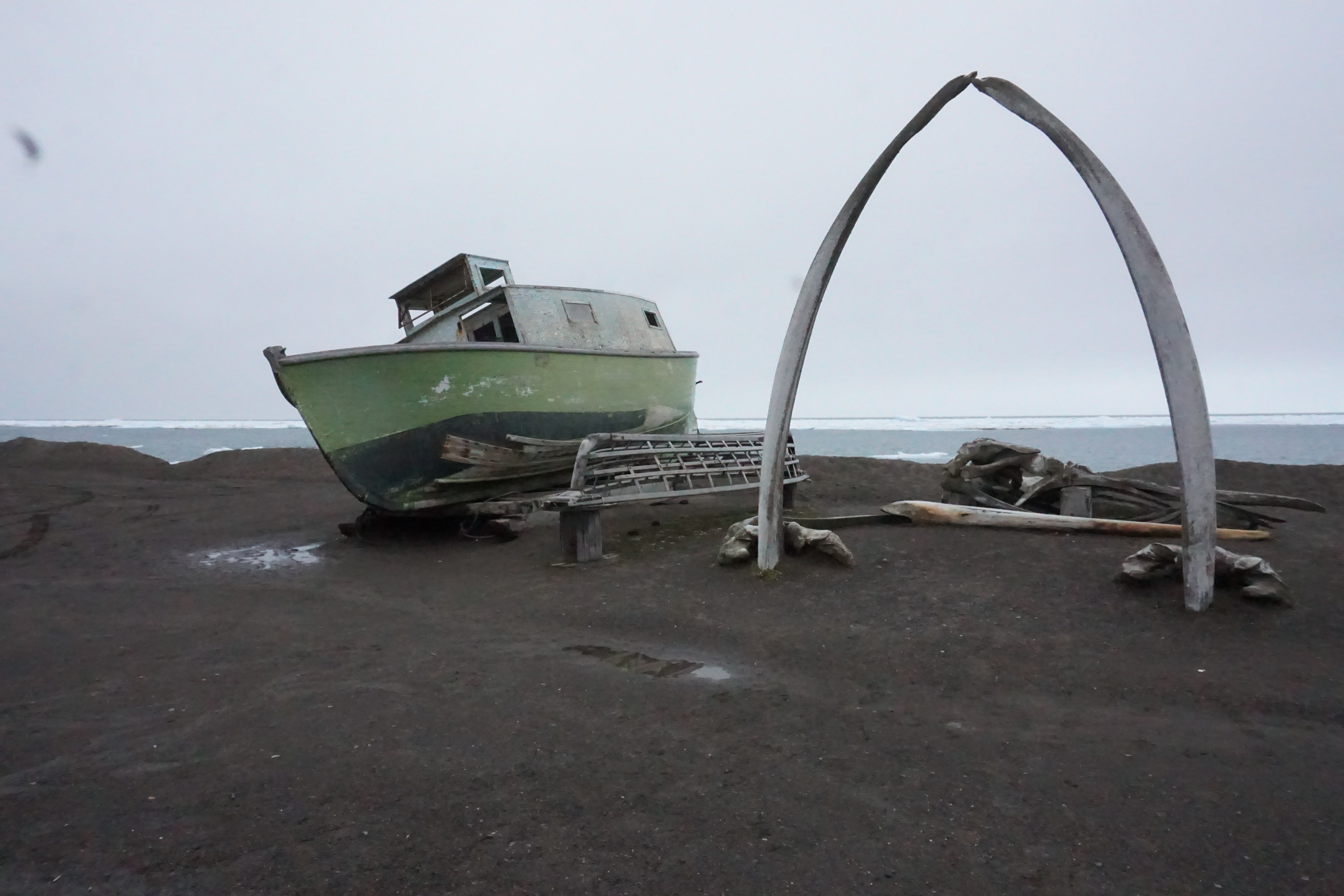Americans still aren’t fully embracing the nation’s Arctic identity, a new survey finds
Residents of only three states — including Alaska — were more likely than not to agree that the U.S. is an Arctic nation with interests in the region.

In the past three years, the United States has chaired the eight-nation Arctic Council, Barack Obama became the first sitting president to visit Arctic Alaska, Congress passed legislation that opens the Arctic National Wildlife Refuge to oil leasing and the news has been filled with stories about extreme warming on land and in the seas of northern Alaska.
Yet Americans remain divided and ambivalent about whether the U.S. is an Arctic nation with Arctic interests, and some are confused about what exists in the Arctic.
That is the conclusion of a series of online surveys conducted by an Arctic-focused think tank. The surveys were conducted last year; results were released on Nov. 8.
Survey respondents were asked if, on a scale from 1 to 7, whether they agreed with a statement: “‘The United States is an Arctic Nation with broad and fundamental interests in the Arctic Region.”
The resulting average was 3.51, just below what would be a midpoint rating of 4, said The Arctic Studio, the organization that conducted the survey.
Awareness of the Arctic and the U.S. role in it appears to have increased since 2015, when The Arctic Studio did a similar survey. That year, the average response was 3.16. However, with just two surveys, it is not yet clear whether there is a trend toward more Arctic awareness in the nation, The Arctic Studio said.
Within the U.S., Alaskans showed the strongest sense of Arctic identity, with an average rating of 5.77. Hawaii and Utah, with average ratings above 4, were the only other states where respondents were more likely than not to agree that the U.S. is an Arctic nation with Arctic interests.
In contrast to the U.S. respondents, Canadians surveyed in the project showed a much stronger sense of Arctic identity. Those answers yielded an average response of 4.87, showing that Canada’s citizens had “a much greater sense of being an Arctic nation than did Americans.”
A second question asked about “the first thing that comes to mind when you think of the Arctic” yielded some weather-related answers. About half said “cold.” Combined, “cold,” “snow” and “ice” were cited by the U.S. respondents.
Climate change was cited by 6.6 percent of U.S. respondents and 7 percent of Canadian respondents.
Animals also got a mention; 7.7 percent of U.S. respondents and 11 percent of Canadian respondents said the word “Arctic” made them think of bears, and 2.4 percent of U.S. respondents and 2.1 percent of Canadian respondents cited penguins. Penguins are not native to the Arctic. They live in the southern hemisphere, in Antarctica and far southern reaches of South America, Australia, New Zealand and Africa.
British and Australian residents were also surveyed, and their responses yielded a much lower rate of identification of their countries as Arctic nations.
Among some United Kingdom respondents, the idea of the Arctic invoked thoughts of a sweet treat. Asked about the first thing that came to mind, 2.7 cited the Arctic roll, a popular British dessert that combines sponge cake and ice cream.
Yereth Rosen is a 2018 Alicia Patterson Foundation fellow.